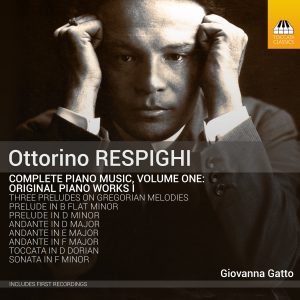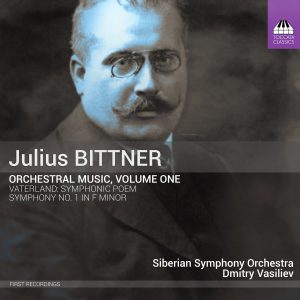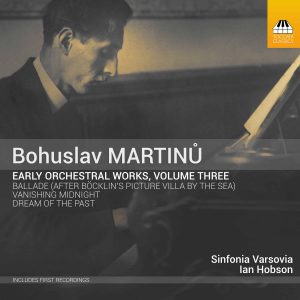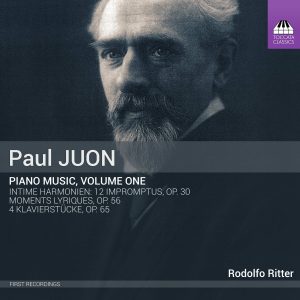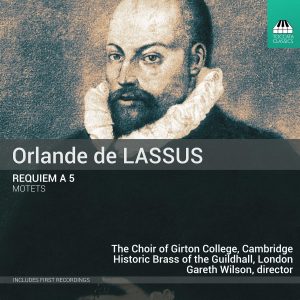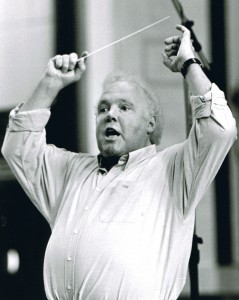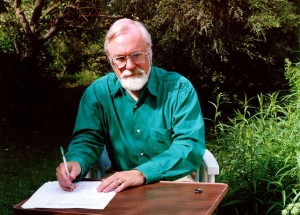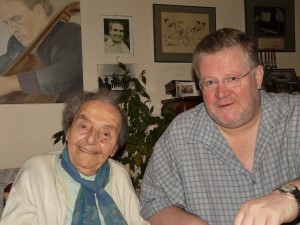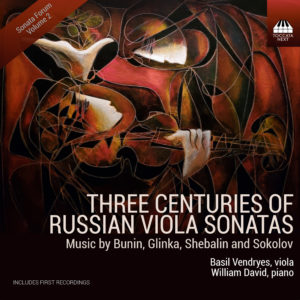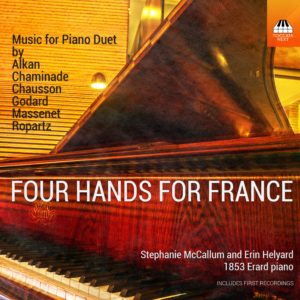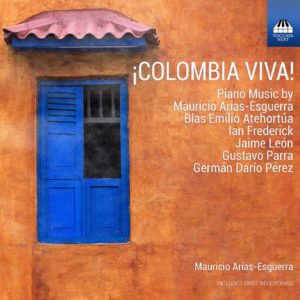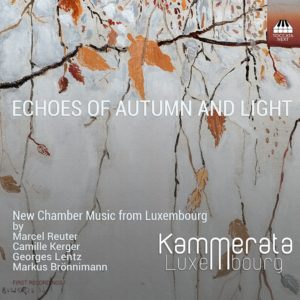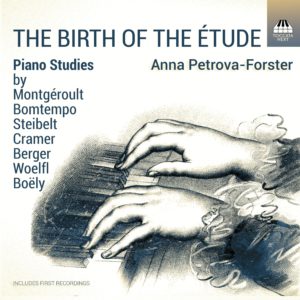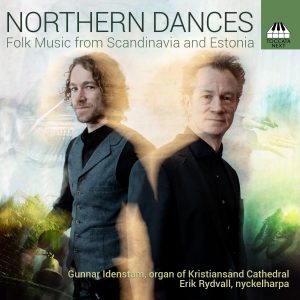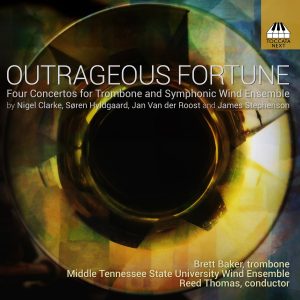Search Results for "Space Wolf: The First Omnibus mp3 torrent" – Page 22
Ottorino RESPIGHI: Complete Piano Music, Volume One
Respighi’s orchestral works are some of the most popular in the mainstream repertoire. His output of piano music, by contrast, is as good as unknown, and this new Toccata Classics series will be the first ever to present it all: original works and transcriptions alike, for solo piano, piano four hands and two pianos. This first instalment crowns his earliest keyboard compositions with the magisterial Three Preludes on Gregorian Melodies, miniature Lisztian tone-poems presented with Busonian grandeur.
Giovanna Gatto, piano
Julius BITTNER: Orchestral Music, Volume One
The name of the Austrian composer Julius Bittner (1874–1939) has been almost entirely lost from view, and yet he was one of the most successful composers of opera and operetta of his day, a mainstay of musical Vienna. Unusually, Bittner was also a practising lawyer; more unusually still, he was a double amputee, the result of the ravages of diabetes. None of his orchestral music has been recorded before – astonishingly, given the quality of the two works presented here. Vaterland is an expansive, Lisztian symphonic poem written on a patriotic impulse early in the First World War; and Bittner’s ambitious First Symphony, which has its starting point in Brahms and Bruckner, is a major piece of late- Romantic musical architecture, both tuneful and grandiose.
Siberian Symphony Orchestra
Dmitry Vasiliev, conductor
Bohuslav Martinů: Early Orchestral Works, Volume Three
This series of recordings of Martinů’s early orchestral works has already brought more than its fair share of surprises. The two shorter works here are colourful and atmospheric tone-poems, pieces of real substance and major discoveries in their own right. But it is the 1922 symphonic triptych Vanishing Midnight (Míjející půlnoc in the original Czech) – here receiving its first recording – which will prove the real revelation. A big-hearted work of breathtaking opulence and striking confidence, Vanishing Midnight is as exquisitely lovely as it is powerful and dramatic – Martinů’s first true masterpiece.
Sinfonia Varsovia
Agnieszka Kopacka, piano (Track 5)
Ian Hobson, conductor
Paul Juon: Piano Music, Volume One
The Russian-born German-Swiss composer Paul Juon (1872–1940) produced a generous amount of piano music – 35 opus numbers – which has yet to be explored in any detail in recordings. This first instalment of the first-ever survey of his piano music reveals a composer close to his Russian roots but also alive to the music of his own time, in a kind of sophisticated blend of Medtner and Debussy, with folk influences from far further afield.
Rodolfo Ritter, piano
Orlande de Lassus: Requiem a 5; Motets
Lassus’ five-part setting of the Requiem is rarely heard; here it is recorded with brass for the first time, the sombre colours of the sackbuts further darkening the tone. Interweaving a number of motets, some also receiving first recordings, and a madrigal on death by one of Lassus’ contemporaries in an organ transcription, this innovative programme takes the listener on a spiritual journey, through the darkness of bereavement to the elevation of the Christian soul after death.
The Choir of Girton College, Cambridge (Tracks 1-4, 6-10, 12-14, 17)
Historic Brass of the Guildhall, London
(Jeremy West, leader) (Tracks 2-8, 10, 12-14, 17)
Lucy Morrell, organ (Tracks 3, 4, 6-8, 10-13, 16, 17)
Gareth Wilson, director
Hans Gál In Conversation
This conversation, first published in the Journal of the British Music Society (Vol. 9, 1987, pp. 33–44), was recorded at Dr Gál’s Edinburgh home in…
Gary Brain Remembered
It has not been a good week. On Friday Yodit, my beloved fiancée, partner of the past seven years and mother of our five-year-old Alex,…
John McCabe in his Own Words
John’s death on 13 February was not unexpected – indeed, he had given his brain tumour a good fight and long outlived his doctors’ prognoses.…
Remembering Alice Herz-Sommer
News has come through of the death this morning, 23 February 2014, of Alice Herz-Sommer, at the age of 110. Alice had become an icon,…
Three Centuries of Russian Viola Sonatas
The Russian viola sonata is a rare bird, not least because the instrument itself was frowned upon by the Soviet authorities; as a result Russian music for the viola has a rather patchy history. It begins in earnest in 1931, when the 1825 Sonata by Mikhail Glinka, ‘the father of Russian music’, was reconstructed from his sketches by Vadim Borisovsky, ‘the father of the Russian viola’. Thereafter, musicians and composers worked together to expand the repertoire. The relationship between the composer Revol Bunin and the violist Rudolf Barshai resulted in a sonata of 1955 which deserves wider currency. Although half a century apart, the Shebalin and Sokolov sonatas have something unusual in common: both were created as part of a triptych, alongside sonatas for violin and cello. All four composers knew how to make the viola sing – though this lyricism is often animated by moments of drama and excitement.
Basil Vendryes, viola
William David, piano
Four Hands for France: Music for Piano Duet
Playing four-hands piano was both vital in the dissemination of music in the nineteenth century and also a popular domestic activity. The French composers recorded here span the Romantic century, from the salon charm of Chaminade and Massenet and the virtuosity of Alkan’s wild dance to the innocence of the family music-room in pieces by Chausson, Godard and Ropartz. The original 1853 Parisian Erard piano on which this recording was made combines warmth with bell-like clarity due to its straight stringing, allowing it to produce a surprising variety of appealing, expressive textures.
Stephanie McCallum (primo) and Erin Helyard (secondo)
Piano Erard 1853
¡Colombia Viva!: Piano Music by Mauricio Arias-Esguerra, Blas Emilio Atehortúa, Ian Frederick, Jaime León, Gustavo Parra, Germán Darío Pérez
In this album Mauricio Arias-Esguerra offers a kaleidoscopic view of recent Colombian piano music, highlighting its striking stylistic variety. Germán Darío Pérez sees a traditional dance through a jazzy lens, and Blas Emilio Atehortúa takes a post-serial approach in his Preludio, Variaciones y Presto Alucinante. The influence of progressive rock music can be heard in Gustavo Parra’s Pavec Lingus, as can Jaime León’s love of US American music in his Made in U.S.A. preludes; and there is techno and angst in Ian Frederick’s Suite Catrina. Arias-Esguerra’s own contributions are highly contrasted, with lyricism in his Arizona Mirage and rhythmic drive in his Toccata Bachkovsky.
Mauricio Arias-Esguerra, piano
Echoes of Autumn and Light: New Chamber Music from Luxembourg
These five pieces – all written by Luxembourgeois composers within the past decade – draw on the flexible forces of Kammerata Luxembourg to generate a kaleidoscopic range of colours and textures. Though the music is unapologetically modernist in style, it is presented in instrumental combinations remarkable for their delicacy and gentle contours – in the aural equivalent of a walk through autumn woods.
Kammerata Luxembourg
Mariette Lentz, soprano (Track 1)
Markus Brönnimann, flute, alto flute, piccolo (Tracks 1, 3–9, 11–16)
Sébastien Duguet, clarinet, bass clarinet (Tracks 3–16)
Max Mausen, clarinet, bass clarinet (Tracks 1-2)
Leo Halsdorf, horn (Track 1)
Sandrine Cantoreggi, violin (Tracks 1, 10)
Haoxing Liang, violin (Tracks 3 – 9, 11 – 16)
Sophie Urhausen, viola (Track 1)
Nora Braun, cello (Tracks 1, 10)
Ilia Laporev, cello (Tracks 2 – 9, 11 – 16)
Jeannot Sanavia, double bass (Track 1)
Chanel Perdichizzi, harp (Track 2)
Victor Kraus, percussion (Track 10)
Béatrice Rauchs, piano (Tracks 1, 3–16)
Camille Kerger, conductor (Tracks 1, 11–16)
The Birth of the Étude: Piano Studies by Berger, Boëly, Bomtempo, Cramer, Montgéroult, Steibelt and Woelfl
The best-known piano studies are the 27 by Chopin, most of them composed in the 1830s. But Chopin did not create the genre: a number of prominent pianist-composers had already established the piano study, or étude, in the decades before Chopin sat down to write his. Although this repertoire is as good as unknown today, it is a treasure-trove of miniature jewels, many of them announcing the dawn of Romanticism in their combination of Classical delicacy and a new harmonic warmth.
Anna Petrova-Forster, piano
Northern Dances: Folk Music from Scandinavia and Estonia
This sparkling collection of folk dances from Norway and Sweden, offset by two Estonian chorales and three improvisations, comes from two of the finest practitioners of this kind of material: Gunnar Idenstam, playing on the new Klais organ of Kristiansand Cathedral in southern Norway, and Erik Rydvall, on the nyckelharpa, the keyed folk fiddle of Sweden. The combination of rhythmic vigour, the harmonic ambiguity of Scandinavian folk music and the huge range of instrumental colour gives these tunes – all in spontaneous, semi-improvised performances – an irresistible and immediate appeal.
Gunnar Idenstam, organ of Kristiansand Cathedral
Erik Rydvall, nyckelharpa
Outrageous Fortune: Four Concertos for Trombone and Winds
This unusual album shows the contemporary trombone in a rich variety of guises – dramatic, lyrical, flirtatious, solemn, capricious and many more – in four recent concertante pieces for trombone and symphonic wind band, demonstrating the striking versatility of the instrument. It’s an international undertaking, too: the soloist is English, the band and conductor American, and the composers American, Danish, Belgian and English, all four writing in a language that is direct and immediate.
Brett Baker, trombone
Natalie Grady, voice actor (Tracks 5, 6)
Middle Tennessee State University Wind Ensemble
Reed Thomas, conductor
Stay In the Know
JOIN THE TOCCATA NEWSLETTER
"*" indicates required fields
By visiting our site, you agree to our privacy policy regarding cookies, tracking statistics, etc.
